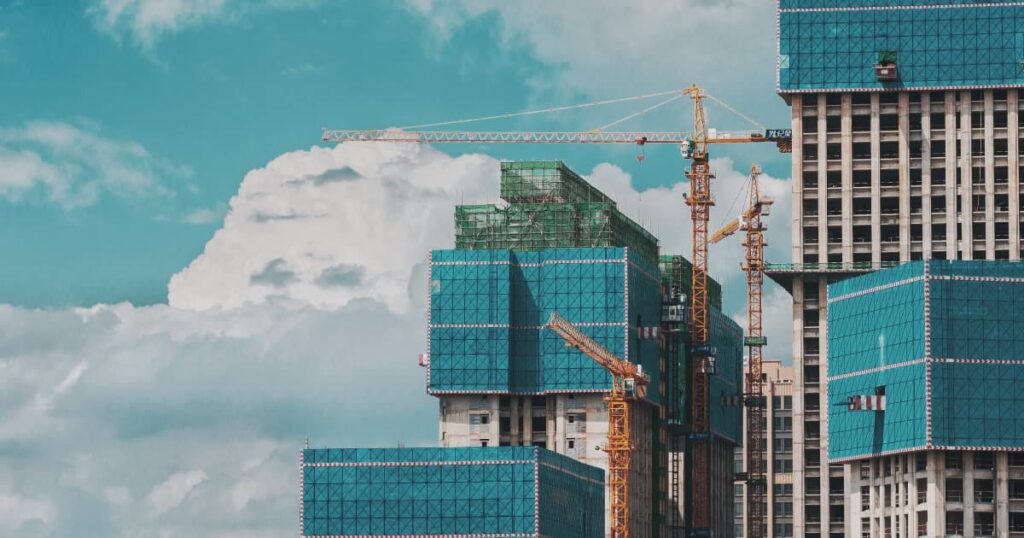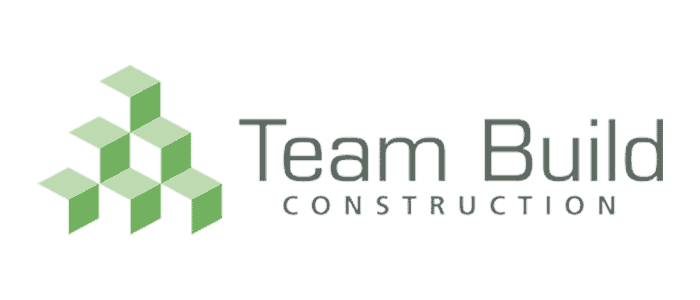
Believe it or not, commercial construction is an industry all on its own – operating on a different level from private and residential construction and generating millions of pounds on a yearly basis.
For many of us, commercial construction is an entity we see at work but don’t really understand – so we thought it was time to share a blog all about commercial construction and what it really means in practice.
What is commercial construction?
The term commercial refers to anything which is designed or created for broader public use or for the private industry sector, be it shops, offices, hotels, or company premises and warehouses. So, a commercial construction is one which deals with the development of these buildings and structures – bringing to life companies, businesses, organisations, and enterprises around the world.
It is important to understand that commercial doesn’t always mean ‘big’.
Common commercial construction project examples
To help you to picture exactly what a commercial construction project is and looks like upon completion, here are some recognisable examples:
- Retail stores and malls
- Hospitals and medical centres
- Offices, warehouses, and factories for business use
- Restaurants
- Gyms and sports centres
Notice how all of these fall under the commercial category but each has a very specific building and structural design? That’s what makes commercial construction such a varied and interesting industry to work in.
Scales of commercial construction
As we’ve already mentioned, a commercial project isn’t always a big one – and the size of the project can affect the time it takes to complete, the contractor quote, and the way in which the project will be approached and executed. Let’s take a closer look at the three variations of project in terms of scale.
Small-scale commercial construction projects
This can refer to anything from a small build from scratch to renovations on a larger building or project – be it repair work, commercial property refurbishments, updates or revamps.
Medium-scale commercial construction projects
A medium project is one where more people are involved in the project, both with regards to on the ground-work and the design process. Some examples include extensions and expansions, building restructures, and larger renovations.
Large-scale commercial construction projects

The large-scale commercial construction projects are those where the contractor is starting from scratch and building from the ground up to create something completely new. This generally starts with an architect and designer, before passing over to the contracted build company to bring it to life. The personnel, time, and budget demands are high for a large project.
The differences between commercial and residential construction
Aside from the usability of the space and the way it is being designed to be used in everyday life, the differences between a commercial and residential project lie mainly in the approach and the way that the project is executed. When thought has to go into consistent health and safety regulations for a high footfall of users, permits and codes are different, accessibility becomes more of an issue, and standards in electricity and IT requirements are much higher.
Another main difference between the two refers to the materials and equipment which must be sourced to enable the project to run smoothly. Commercial construction often calls on relationships between suppliers and contractors to obtain the best possible materials for any given project, and equipment must be both sourced and operated by trained professionals who work with large machinery every day.
The final difference lies in the time constraints of the project and the pace at which the project will be completed. With so many people working on all elements of a commercial project at any one time, the pace on a big project is fast – with project managers demanding efficiency as well as quality and putting large budgets behind getting the right materials in as quickly as possible.
Commercial construction terminology
And now for some of the main terms you may hear and be unsure about in the world of commercial construction.
General contractor – this term refers to the company responsible for overseeing the entire project, including budgeting, scheduling, management, and completion.
Subcontractor – these individuals or companies are bought in to perform more specific services under the guidance of the General Contractor.
Foreman – this individual’s job is to oversee the onsite team.
Project manager – the project manager liaises with the site and the client to ensure all requirements and demands are being met, on time and within budget.
Design-bid-build – this term refers to the process through which the client will hire a design company who will decide on the layout and construction of the building, before putting the groundwork out to a contractor bid for the actual build process.
Design-build – this term is when the same company designs and builds the project.
Bid – a price proposal based on specifications and the overall project outline.
Need more advice and information about commercial construction? Our team are always here to help!

